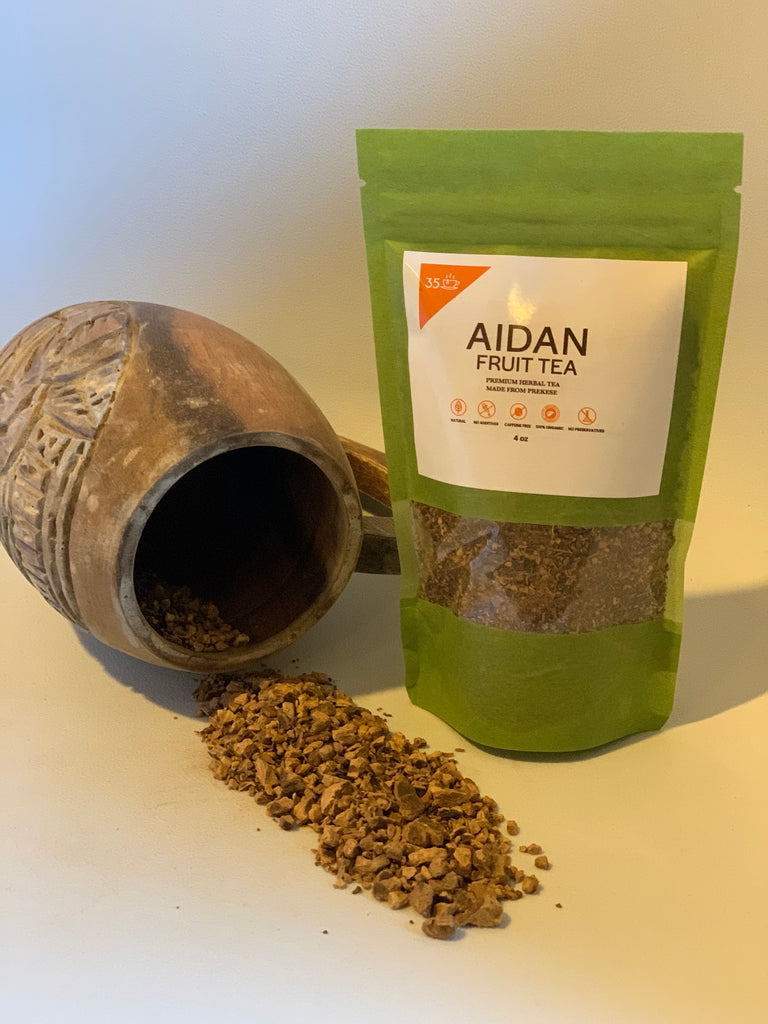A Wonder Dietary Supplement Made Easier by Two Brothers

The Asiedu brothers of Koforidua Afidwase in the Eastern Region of Ghana had long dreamt of being self-employed.
After their National Service, the two brothers Gideon and Isaac decided it was time to fulfill their dreams. Isaac, the junior of the two, conceived the idea of utilizing prekese – scientifically known as Tetrapleura tetraptera – a local hardcrusted fruit that he had observed as a staple supplement in his extended family’s diet.
He thought making it into a powdered form would maximize its benefits, instead of the known traditional way that extracts a small percentage of the fruit for use.
Gideon, who was returning from South Africa after studies, brought some novel ideas to develop the product as intended.
Hitherto, the brothers, with the help of their siblings and mother, would start the labor-intensive task of crushing the hard husk prekese in a traditional mortar. The cracked pieces would be sundried for about two weeks to get rid of the oil in them. With the introduction of a mechanical system, part of the manual work was eliminated.
The second phase employs a system that includes analysis of product, after which the prekese is finally processed and bottled in a powdered form for use as a varied dietary supplement.
The final products contain no other ingredients. The prekese tea and powder produced by the two brothers have been approved by the Ghana Food and Drugs Authority and tested by the Food Research Institute of the Council for Scientific and Industrial Research as well as the Center for Plant Medicine.
The two products are currently retailed in Ghana and the U.S.A by 10Regions.
Tetrapleura tetraptera has been used locally for centuries as a medicinal and natural spice in dietary supplements.
Besides its sweet aroma, the flavanoid-filled, vitamin-saturated fruit common in West Africa has been used to treat diabetes, hypertension, epilepsy, convulsion, and wounds, among other afflictions. It is called dawo in Hausa, osakirisa in Igbo, and aridan in Yoruba.
